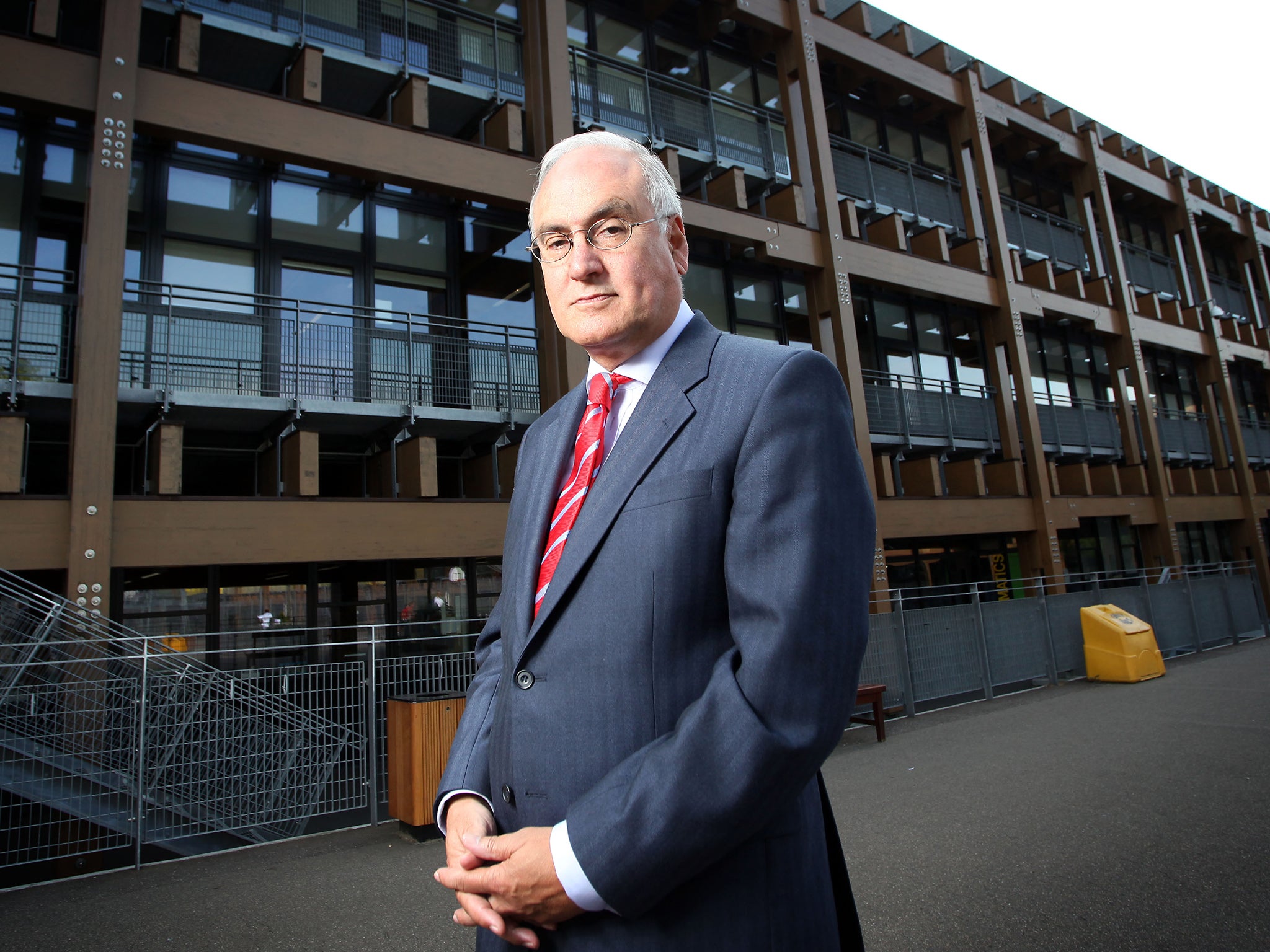Theresa May told to stop ‘obsessing’ over ‘socially divisive’ grammar schools
Departing chief inspector of schools Sir Michael Wilshaw says more grammars ‘will lower standards for the great majority of children’

Your support helps us to tell the story
From reproductive rights to climate change to Big Tech, The Independent is on the ground when the story is developing. Whether it's investigating the financials of Elon Musk's pro-Trump PAC or producing our latest documentary, 'The A Word', which shines a light on the American women fighting for reproductive rights, we know how important it is to parse out the facts from the messaging.
At such a critical moment in US history, we need reporters on the ground. Your donation allows us to keep sending journalists to speak to both sides of the story.
The Independent is trusted by Americans across the entire political spectrum. And unlike many other quality news outlets, we choose not to lock Americans out of our reporting and analysis with paywalls. We believe quality journalism should be available to everyone, paid for by those who can afford it.
Your support makes all the difference.The chief inspector of schools has warned Theresa May to stop “obsessing” about expanding the number of grammar schools in the UK, calling it a “socially divisive” policy that will lower standards for most children.
In a scathing parting shot at the Prime Minister, Ofsted chief Sir Michael Wilshaw said preparing for a likely skills shortage in the aftermath of Brexit should be the Government’s top priority, “not grammar schools”.
Sir Michael will retire from his role at Ofsted in December at the end of his five-year term, and in an interview with The Observer said having to “deal with politicians” had been the hardest part of the job.
Now that he is on his way out, it appears the 50-year veteran of the schools system has decided to turn the tables on the policy-makers. His intervention will be music to the ears of critics of Ms May’s drive for new grammars in her own Tory party, including the former Education Secretary Nicky Morgan.
In a systematic takedown of the grammar school system, Sir Michael said more selective schools “will actually lower standards for the great majority of children”. “That is my view. And it is socially divisive as well,” he said.
Grammars “siphon off the best children, the most academic children”, he said. “If you are taking away the most able kids from the comprehensive system, you’re creating by another name secondary moderns.
“You can call it what you like. You can call it a technical school, a creative school, a red-white-and-blue school, but people will know that the most academic children are not going there.”
Such a “binary system” means that both teachers and students alike who don’t make it to grammars will be regarded as second-best – in the children’s case, at 11 years old. “Which great education system has selection at 11? I don’t know any.”
And he told The Observer the comprehensive system had improved so much that they actually performed better than grammar schools in a lot of cases.
“If you had asked me 20 years ago whether comprehensives were working I would have said no. Ask me now and I would say in many parts of the country they are working extremely well. The latest research shows that the best comprehensives are doing better than grammar schools for the most able children.”
Sir Michael said attracting teachers across the school spectrum was already hard enough, and set to get harder. “The skills shortages are getting worse and that will exacerbated, I suspect, by Brexit,” he said.
“If you’re going to make a success of Brexit, this should be the number one priority of government. Not grammar schools … Otherwise we won’t have the skills. And the prospects for growth in the economy and productivity in the economy will suffer.”
Asked what he would do if he were one of the politicians he has spent the last five years struggling with, Sir Michael said he would look to the examples of Germany, Switzerland and Norway, which channel 14- to 19-year-olds into vocational technical colleges while retaining strong core systems.
“If I was secretary of state for education I would insist that every significant multi-academy trust contained a university technology college from 14 to 19 offering core subjects – English, maths, science – but also a specialism,” he said. “We need to say to youngsters, ‘There are other paths than university’.”
Join our commenting forum
Join thought-provoking conversations, follow other Independent readers and see their replies
Comments